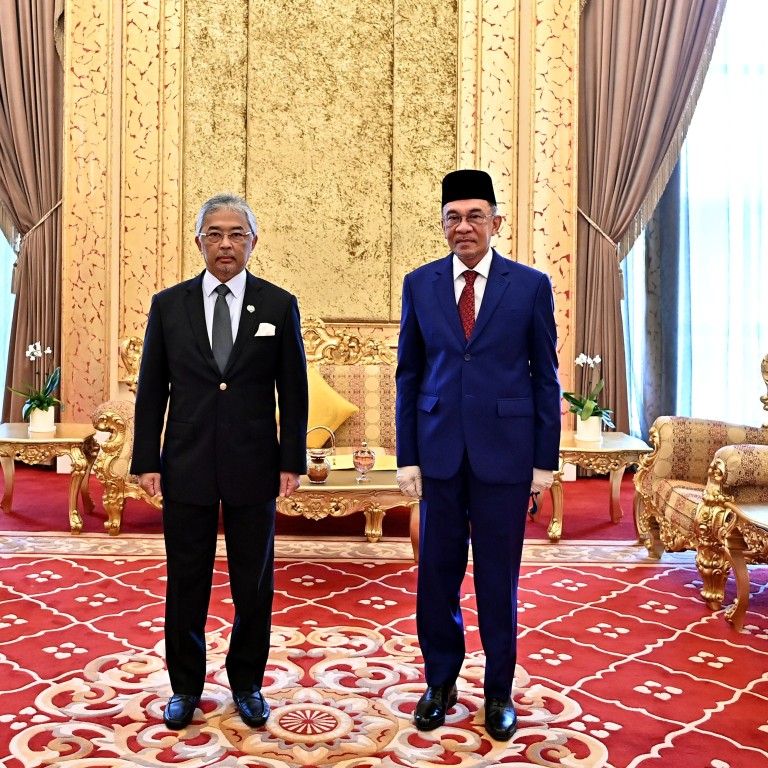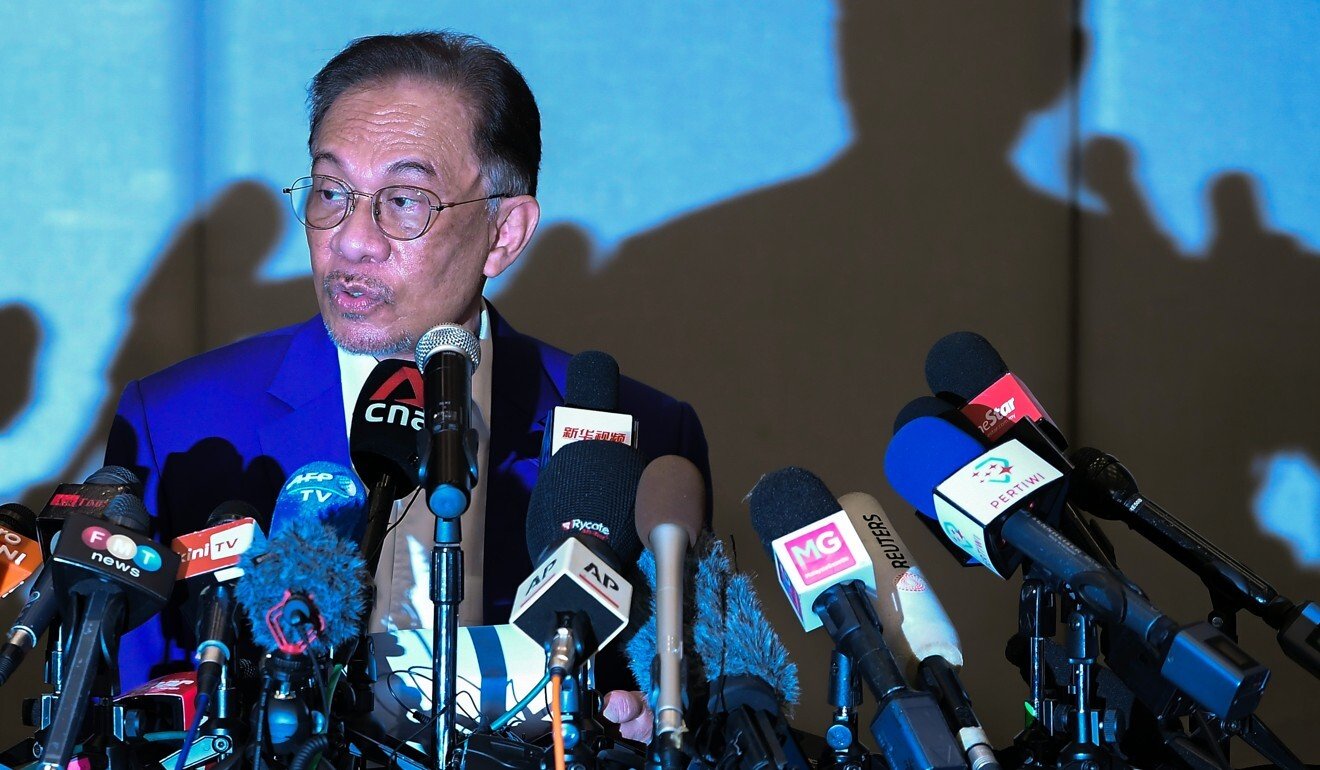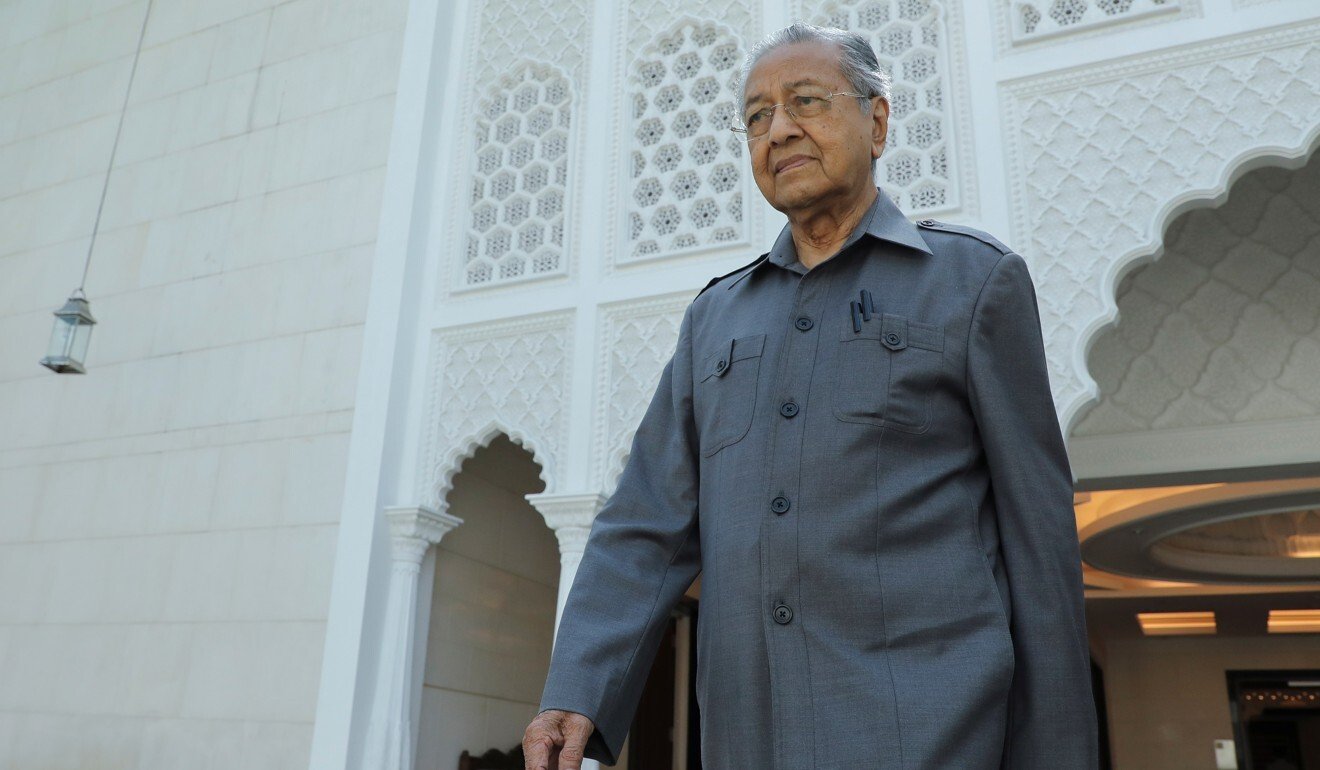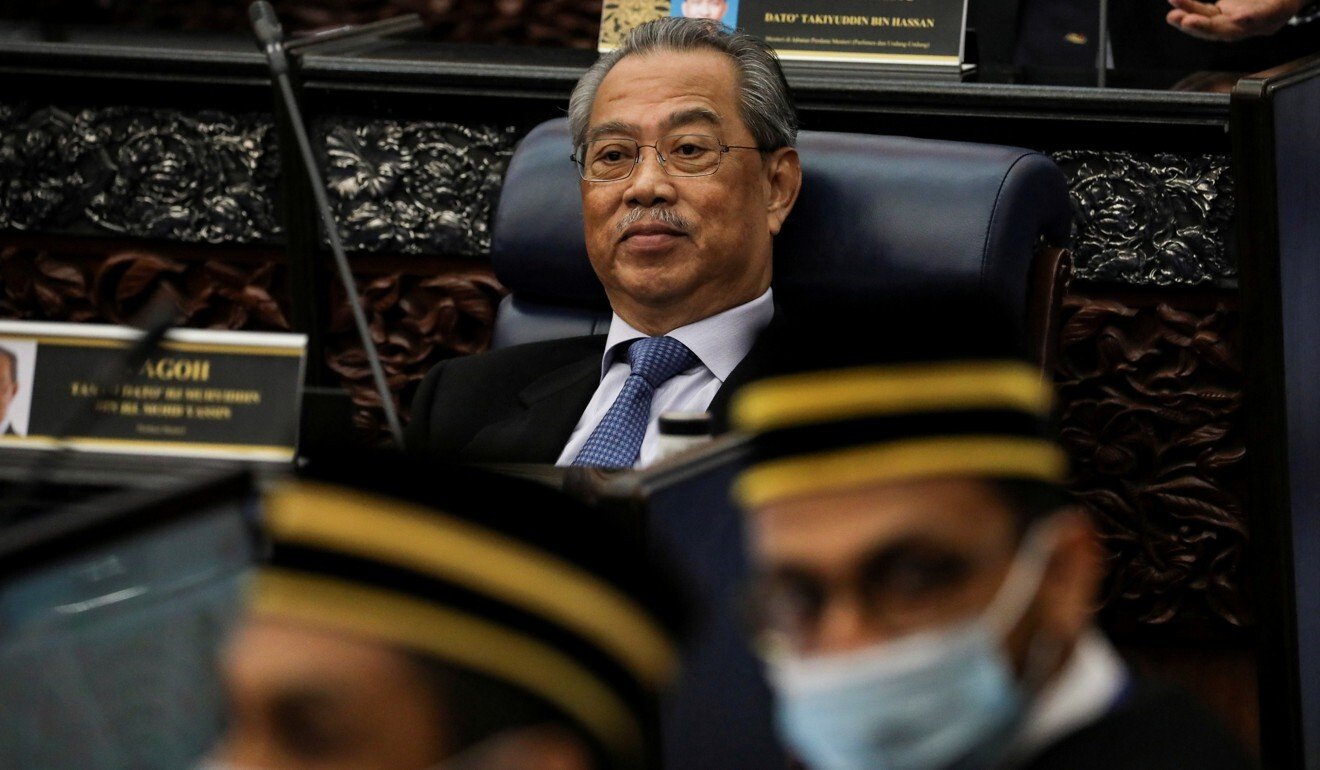
Is Malaysia’s king taking sides in the current political turmoil?
- Sultan Abdullah Sultan Ahmad Shah issued a fresh statement on Friday urging calm following a meeting with Anwar Ibrahim earlier in the week
- Political analysts were split on what the king’s intentions were with the statement – and whether it indicated support for PM Muhyiddin Yassin
Muhyiddin’s Perikatan Nasional ruling alliance is propped up by 39 MPs from the United Malays National Organisation (Umno) – the former ruling party that remains a major political force in the country.
Malaysia’s Anwar urges ‘patience’ after meeting king over his PM bid
Anwar’s plan involves pulling over Umno MPs who are disgruntled with Muhyiddin’s leadership and is the latest twist in the political imbroglio the country has been mired in since late February, when Sultan Abdullah Sultan Ahmad Shah intervened to play a stabilising role following the back-room coup Muhyiddin staged to assume power.
The king’s earlier scheduled meetings with leaders of parties backing Anwar have been put on hold on account of a partial lockdown in place since Wednesday across the Kuala Lumpur area.
And in a sign of his lukewarm views on the issue, the palace soon after the meeting released a statement saying the king had told Anwar to abide by the constitution and prioritise the health crisis.

The fresh statement on Friday was not addressed to anyone but instead urged all sides to “resolve their problems through negotiations and the legal process in accordance with the federal constitution”.
Political analysts were split on what the king’s intentions were with the statement.
As king, or Yang di-Pertuan Agong, Sultan Abdullah plays a largely ceremonial role in the country’s politics – though his final seal of approval is required for various key appointments, including that of prime minister.
As part of Malaysia’s system of rotational monarchy, the 61-year-old royal in 2019 was elected as the national king for a five-year term by eight other hereditary rulers who head the country’s various royal households.
[The] stature of the royalty is being affected as it is adding to the deep polarisation in the country
Veteran commentator Bridget Welsh told This Week in Asia the king’s “delays and refusal to meet sides in the midst of a political crisis suggests that he favours the status quo, Muhyiddin”.
There was also a “contradiction” in the king’s statement, Welsh said, pointing to how his stated worries about the pandemic did not square with the Muhyiddin administration’s role in worsening the situation through “its double standards, gaps in competence and failures to properly address problems in Malaysia’s [virus] epicentre, Sabah”.
She added that the “stature of the royalty is being affected as it is adding to the deep polarisation in the country in a crisis”.
Peter Mumford, Southeast Asia practice head of the Eurasia Group political risk consultancy, offered an opposing view. Rather than taking sides, the Singapore-based analyst said Sultan Abdullah was strongly signalling that “the political chaos is deeply unhelpful at a time Malaysia is grappling with the pandemic and severe economic contraction”.

The monarch’s remarks also showed his preference not to intervene directly as he did during the February-March power struggle, Mumford said.
At that time, with the collapse of the then-ruling Pakatan Harapan alliance as a result of manoeuvres by Muhyiddin and several other instigators, the task of picking the next prime minister was thrust upon the king.
That move sparked controversy, with critics saying the king should have allowed a special session of parliament to be convened to allow lawmakers to vote on who would be the next prime minister.

This time round, Mumford and other analysts said a parliamentary vote – by way of a no-confidence motion against Muhyiddin – is the most likely way that the current impasse will be resolved.
Such a vote puts the onus on Muhyiddin and Anwar to consolidate a majority who will back them when the legislature sits, rather than hope that the king makes a call like he did in February.
James Chin, a Malaysia watcher with Australia’s University of Tasmania, said discontent among the “Malay chattering classes” with the way the king intervened directly to appoint Muhyiddin – and the knife-edge majority his government commands – would likely deter the monarch from attempting the same move again.
Several MPs including two-time prime minister Mahathir have presented no-confidence motions ahead of a filing deadline for the next legislative sitting that begins on November 2.

“Ultimately, the [king] has sent a signal for the warring politicians to consolidate their forces, and should this fail, the next recourse would be parliament, [through] a no-confidence motion,” said Shazwan Mustafa Kamal, a senior associate with the government regulatory affairs and political risk consultancy firm Vriens & Partners.
Aside from the king’s moves, mixed signals from within Umno are also being watched closely.
A source close to Anwar told This Week in Asia that 30 out of the party’s 39 MPs were firmly behind the opposition leader, meaning he had the comfortable backing of 55 per cent of parliament. The opposition leader‘s Pakatan Harapan bloc controls 91 seats.
How Anwar Ibrahim’s prophecy of power could come true at last
Since Anwar’s Tuesday meeting, however, various Umno personalities have equivocated over whether they would back the opposition leader or continue supporting Muhyiddin.
Late on Tuesday the party indicated it wanted a fresh written compact with the sitting government. On Friday, Umno’s secretary general Ahmad Maslan was quoted by local media as saying it would submit its demands to Muhyiddin next week.
“Politics is a numbers game and [the status quo] does not reflect how we are treated,” he was quoted as saying by the Malay Mail. “We [Umno] do not want to drag this issue any longer and we are hoping that it will be settled before the coming parliamentary sitting on November 2.”

